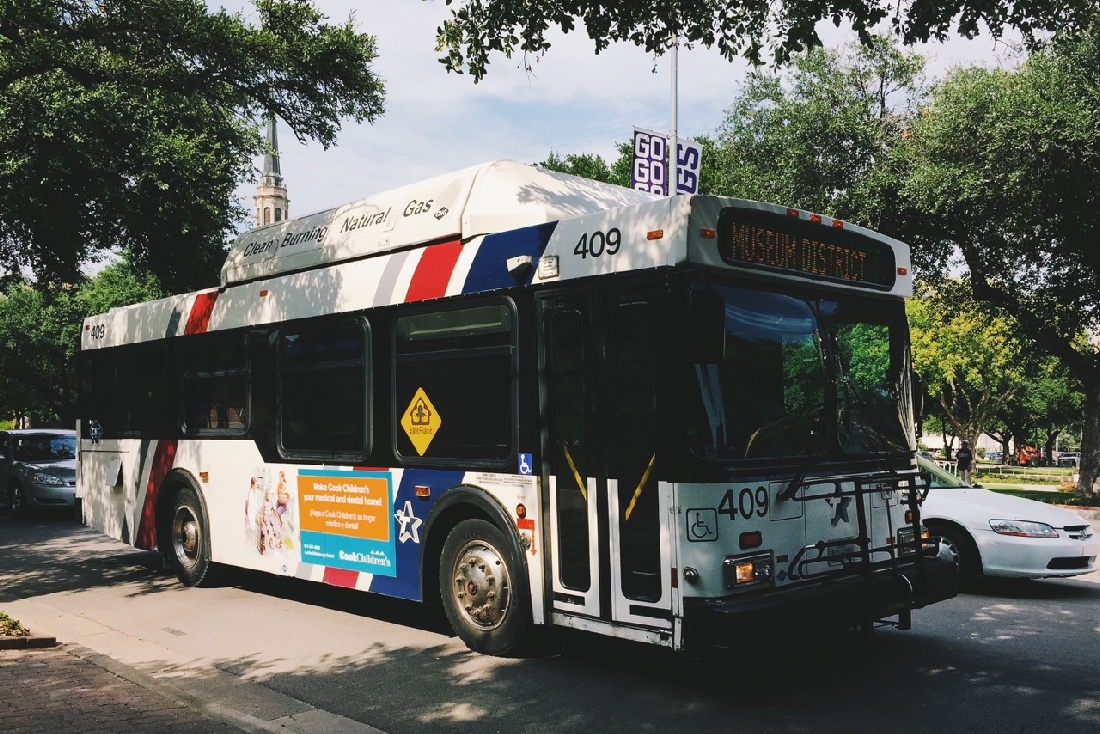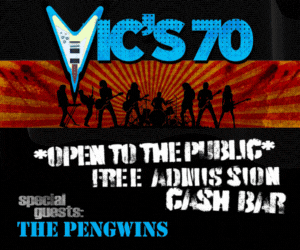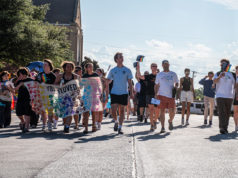It’s been nearly five years since the City Council, in a split vote and operating under what many would call questionable circumstances, voted to kill the nascent Fort Worth modern streetcar project. I distinctly remember promises from anti-streetcar politicians at the time that those of us wanting better central-city transit in Fort Worth shouldn’t worry, because they could improve The T’s bus system instead.
After all this time, I’ve yet to see those promised bus system improvements. The city has put virtually all of its attention in transit toward the TEXrail commuter rail line, which has shrunk from a southwest-suburbs-to-D/FW-airport route to just a phase running from downtown to the airport, and which is still years away from opening. Meanwhile, the bus system still operates with problems of low frequency (with buses appearing on popular streets at headways of once every half hour or so), confusing routes, bare-bones stops, and a myriad of other issues that limit its appeal.
It’s hard not to feel at times as though the city’s marketing has been a bit of a bait-and-switch job. Fort Worth has promoted the revitalization of urban neighborhoods, but they’ve done essentially nothing to improve transit service for those neighborhoods, even as they attract more and more of the sort of residents who would want better transit. Instead, they’ve concentrated on trying to lure suburban commuters with trains stopping at park-and-rides (even as they simultaneously widen freeways and build toll roads). It’s hard to build the kind of sustainable walkable development the city says it wants when transit service is so poor that every significant urban project needs to have hundreds or thousands of parking spaces attached to it, and even small neighborhood-scaled projects are often accompanied by parking lots larger than the footprint of the buildings they build.
Even low-hanging fruit seems to be passed by. How is there not, for example, an expansion of/replacement for Molly the Trolley that, rather than simply looping around our already compact and easily walkable downtown, tries a little harder to be useful and actively ties together the various extremely popular destinations of the central city? A quick, easy, direct bus circulator with frequent 10-15 minute headways that connects, say, the museums, 7th Street, Sundance Square, South Main, and Magnolia Avenue (at times of day not solely focused on 8-to-5 commuters) would seem to be a relatively inexpensive no-brainer that would be a start toward getting Fort Worthians thinking in a transit-oriented fashion, but no such project seems to even be in the theoretical stage. (Those familiar with DART’s projects will notice they operate this very sort of bus system, known as D-Link, in central Dallas.)
As much as many of us would love to revive the streetcar or see Fort Worth start investing in Dallas-style light rail, even a rethought and rebooted bus system would be a good first step (especially given the difficulty of doing anything else with The T’s extremely limited budget), but it feels like urban transit has been locked in a holding pattern for the last several years.
Maybe it’s time to start talking about it again.













Private investors run Fort Worth, not city council (despite how much Betsy pretends). It will take grassroots efforts to find a way to lure money away from the narrow-minded toll road and parking garage rates mindset. The biggest obstacle is getting investors to realize the profit potential since they likely see current transit as most FTW residents do – only for homeless and the poor.
Kevin, the problem here is chicken and egg stuff injected with prosperity theology. No one rides the T because it is so bad, and the political leadership doesn’t think it is important enough to fund because no one rides. I’ve lived in other cities where mass transit is merely a transportation choice — do you get from point a to point b via car, bus,train, bike, walk? — and no one judges you by what choice you make. In Fort Worth, the transportation choice comes with a moral criteria: Not driving a car and taking a bus means you are poor and not striving for betterment and therefore not deserving of a decent system. I’ve lived in many other cities, and while that attitude pokes its head out slightly once in awhile, in Fort Worth that is the dominant norm. So people can trot out the importance of urban planning and environmental concerns of automobile carbon emissions and the high cost of parking at development projects and paying for more road building that is obsolete even before completed and other concerns of the hikey/bikey set, but the problem is much more simple. Mass transit in FW is perceived as being for poor poeple. And FW doesn’t like poor people.
Gotta disagree. One of the biggest problems with not only this city, metroplex, region, state, and country is the lack of a viable commuter rail system.
I could care less about a bus – I’d much rather get around the mess of our highway systems.
Reader, you have articulated the argument of people who have no experience using public transportation. Always say they want a “viable commuter rail system” or some such. I just wanna ride a train like I seen in the movies, not some bus with all those stinky homeless people. OK, so what happens when you get off the train? Does the train drop you off at the front door of your office? What about people who want to get to downtown FW from the hospital district and the bus system is crappy. People don’t use commuter rail unless there is a viable “intra urban” system once they get off the train. And not only do you have to take care of that last mile, you have to provide service for people who are only going a few miles, not the ones who are commuting from the Alliance Airport area. Unless you fix the local bus system, the commuter rail system doesn’t work.